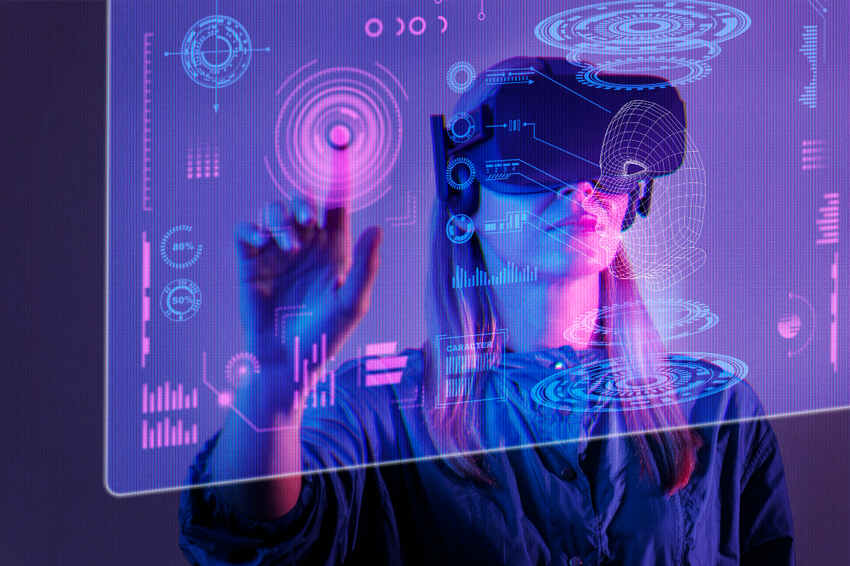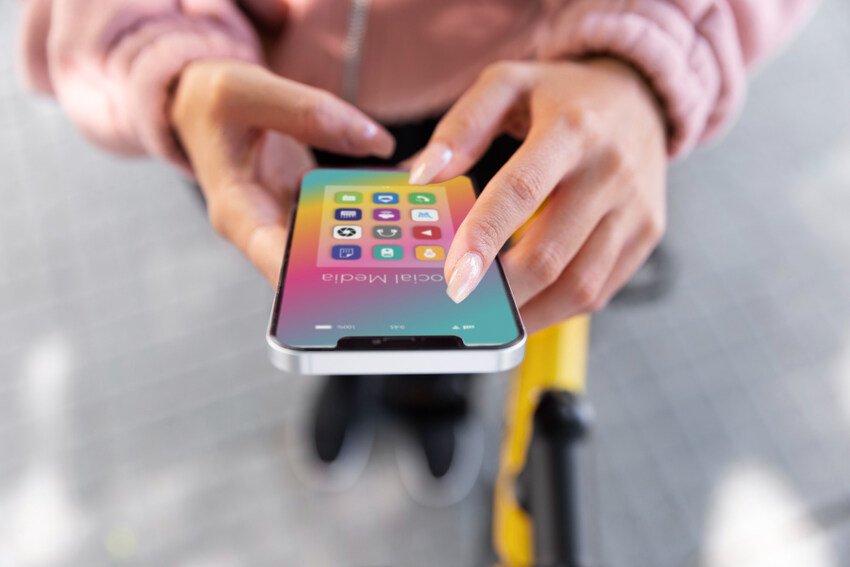Technology is advancing rapidly. It is transforming our world in ways we never imagined. By 2025, new tech will transform industries and daily life. It will also tackle global issues. In 2025, game changing technologies aren’t just on the horizon. They’re already shaping how we work, communicate, and interact with our environment. This article explores new technologies. They will change industries, improve sustainability, and better lives in five years.
1. Artificial Intelligence (AI) and Machine Learning (ML) Reach New Heights
AI has driven tech advances. By 2025, it will be even more transformative. AI and ML will be vital in all aspects of life. This includes personalized healthcare and real-time financial advice.
-
NLP advancements will improve virtual assistants and translation services. They will break down language barriers with greater accuracy. AI language models will improve customer service and human-computer interactions. They will also create more personalized digital experiences.
-
AI in Healthcare will revolutionize diagnostics: It will excel at medical imaging, genetic analysis, and early disease detection. AI algorithms will improve drug discovery. They will cut costs and speed up new treatments.
-
Autonomous AI Systems in sectors like retail, transportation, and manufacturing will streamline operations. AI-powered robots are expected to become mainstream. They will boost efficiency and safety in warehouses, supply chains, and agriculture.
2. Quantum Computing Takes a Leap Forward
Quantum computing is poised to be one of the most game-changing technologies in 2025. Quantum computers use quantum mechanics. They can solve problems that classical computers cannot.
-
Revolutionizing Data Processing: Quantum computing will boost data processing speed and capacity. This will enhance AI and big data analytics. Faster calculations and better problem-solving will benefit fields like cryptography, chemistry, and logistics.
-
Breaking Down Barriers in Scientific Research: Quantum computing will enable researchers to run advanced simulations that were impossible before. This is especially true in molecular chemistry, materials science, and physics. It could lead to major breakthroughs in clean energy, materials, and climate science.
-
Improved Cybersecurity: Quantum computing has the potential to make current encryption methods obsolete. This poses new challenges for data protection. But, quantum cryptography solutions are in development to counter future cybersecurity threats.
3. 5G and the Beginnings of 6G Networks
5G networks are transforming global connectivity. By 2025, 5G will impact almost every sector. Also, research on 6G networks will enable huge advances in communication tech.
-
Faster Data Speeds and Connectivity: 5G promises lightning-fast speeds. It will enable real-time data transfer. This will power new uses in telemedicine, virtual reality (VR), and augmented reality (AR).
-
Smart Cities and IoT: 5G will boost smart cities by enabling faster data transfer between millions of IoT devices. This will improve traffic management, energy distribution, waste management, and public safety.
-
6G Vision: 5G is still being implemented. But, 6G research is underway. It aims for faster speeds and lower latency. By 2025, early work on 6G will start a new era in wireless communication.
4. Advancements in Renewable Energy and Storage Technologies
As awareness of climate change grows, so does the need for sustainable energy. In 2025, we will see key innovations in renewable energy and storage. As governments and industries seek cleaner energy, tech will help make renewables more viable and accessible.
-
Solar and Wind Energy: Solar panels and wind turbines will be cheaper and more efficient. New materials and designs will boost renewable energy. They include perovskite solar cells and floating offshore wind farms.
-
Energy Storage Innovations: Batteries, especially lithium-ion and solid-state ones, should improve. They will have higher energy density, better safety, and a longer lifespan. Advanced energy storage will be key for balancing supply and demand in renewable power grids. It will make renewable energy more reliable.
-
Hydrogen as a Clean Fuel: Hydrogen fuel, especially green hydrogen from renewables, may be key to clean energy. Hydrogen will fuel transport and heavy industry, reducing emissions.
5. Augmented Reality (AR) and Virtual Reality (VR) Integration
By 2025, AR and VR will evolve beyond gaming and entertainment. They will be used in education, healthcare, real estate, and the workplace.
-
Enhanced Remote Collaboration: AR and VR will enable immersive collaboration in remote work. It will feel as if colleagues are physically present. This will enhance communication, project management, and even training in virtual environments.
-
Education and Training: AR and VR will provide immersive, hands-on learning experiences. Students and professionals can use virtual field trips and medical training simulations. They can learn through real-world scenarios in safe, controlled environments.
-
Retail and Real Estate: In retail, AR will let customers virtually try on clothes or furniture. This will enhance online shopping. In real estate, buyers can take virtual tours of properties. They won’t need to visit in person.
6. Blockchain Beyond Cryptocurrencies
Blockchain, linked to cryptocurrencies, will have wider uses by 2025. Blockchain could become vital for security and transparency. Its uses span supply chain management to finance.
-
Supply Chain and Logistics: Blockchain will track products in the supply chain. It will ensure transparency and authenticity. It will help industries like food, pharma, and luxury goods. It will cut fraud and improve quality control.
-
Smart Contracts: Blockchain-enabled smart contracts will automate and secure transactions. They will eliminate intermediaries, streamlining finance, real estate, and legal processes. Smart contracts can ensure trust and reduce the potential for human error.
-
Identity Verification and Security: Blockchain will help verify identities. It will let people control their data and reduce identity theft. This will have implications for digital security, data privacy, and personal identification.
7. Personalized Medicine and Biotechnology
By 2025, biotech advances will create game-changing technologies. They will offer healthcare tailored to a person’s genes, habits, and health data.
-
Genomic Medicine: New gene editing tools, like CRISPR, will cure genetic diseases. They will fix the genes that cause them. By 2025, gene therapies may be more available for sickle cell disease, muscular dystrophy, and some cancers.
-
Wearable Health Tech: Smartwatches and other wearables will track more health metrics. These include blood sugar levels and heart rate variability. These devices, with AI, will analyze health data. They will give personalized health insights and preventive care.
-
Regenerative Medicine: 3D bioprinting and tissue engineering will advance. They may enable lab-grown organs and tissue repair. This could transform organ transplants and injury treatments.
Conclusion:
The 2025 technologies above are more than just advances. They herald a future where tech integrates into daily life. It will support a safer, smarter, and more sustainable world. As AI, quantum computing, and 5G evolve, they will change our interactions, jobs, and the environment.
These innovations will tackle global challenges. They will boost industries and create new opportunities for people and organizations. Each new technology poses unique challenges. But, it can greatly improve lives. It could lead to a future where technology improves humanity. Let’s stay informed and adaptable. Then, we can look forward to a 2025 that uses game-changing technologies for everyone’s benefit.
FAQs:
1. What are game-changing technologies in 2025?
Game-changing technologies in 2025 are innovative advancements that are expected to significantly impact industries and daily life within the next few years. These technologies include AI, quantum computing, 5G networks, renewable energy innovations, augmented and virtual reality, blockchain applications, and personalized medicine.
2. How will AI be a game-changer by 2025?
By 2025, AI will play an even more prominent role in areas like personalized healthcare, advanced language processing, automation, and autonomous systems. AI-driven diagnostics, real-time customer service, and autonomous machines will become increasingly common, transforming industries and improving efficiency across sectors.
3. What is the potential of quantum computing in 2025?
Quantum computing is expected to advance fields that require heavy data processing and simulation, such as cryptography, scientific research, and complex logistics. In 2025, it may enable breakthroughs in material science, secure data protection, and energy solutions that are currently limited by traditional computing capabilities.
4. How will 5G and 6G impact everyday life?
The widespread implementation of 5G networks will provide faster data speeds, enhancing telemedicine, remote work, and real-time gaming experiences. Research into 6G will lay the foundation for even faster, lower-latency networks, which will further revolutionize communication and support the growth of smart cities and the Internet of Things (IoT).
5. What renewable energy advancements are expected by 2025?
Solar and wind energy will become more efficient and affordable, with improvements in energy storage making renewables more reliable. Innovations in hydrogen fuel, energy storage, and green energy technologies will help reduce dependence on fossil fuels, promoting a sustainable, clean energy future.
6. How will AR and VR technologies evolve by 2025?
AR and VR are anticipated to be widely adopted beyond entertainment, particularly in remote collaboration, training, and education. These immersive technologies will make virtual meetings feel more realistic, enhance e-learning, and offer hands-on simulations for professionals in fields like healthcare and engineering.
7. What are the main uses of blockchain technology in 2025?
Blockchain technology will go beyond cryptocurrencies, enhancing transparency and security in supply chain management, enabling smart contracts, and improving identity verification. Blockchain applications will streamline business processes in industries like finance, law, and logistics.
8. What is personalized medicine, and why is it significant for 2025?
Personalized medicine involves tailoring healthcare treatments to an individual’s genetic makeup and health data. By 2025, advances in gene therapy, wearable health tech, and regenerative medicine will enable more precise treatments, early disease detection, and preventive healthcare tailored to each patient.
9. How do these technologies impact sustainability?
Many of these game-changing technologies in 2025, like renewable energy advancements, quantum computing for energy research, and efficient transportation solutions, aim to reduce environmental impact and address climate change. By promoting sustainable practices and energy efficiency, they contribute to a healthier planet.
10. How can businesses prepare for the technological changes expected by 2025?
Businesses can prepare by staying informed about these trends, investing in digital transformation, and adopting flexible and scalable solutions. Many companies may also benefit from exploring AI, blockchain, and AR/VR to enhance productivity and customer engagement.
Read Dive is a leading technology blog focusing on different domains like Blockchain, AI, Chatbot, Fintech, Health Tech, Software Development and Testing. For guest blogging, please feel free to contact at readdive@gmail.com.





